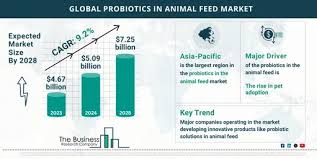8 years ago, Singapore declared war on diabetes. Is it winning?

HOW TO TELL IF WE'RE WINNING THE WAR
It has been eight years since the launch of the war on diabetes, and while Singapore has made some progress, experts caution that it may take more time before its impact can be fully evaluated as a long-term success.
"Effects for chronic disease prevention initiatives will always take decades before the effects and expected trends can be analysed," said Asst Prof Ang.
Dr Tan, the diabetes consultant who is also the past president of Diabetes Singapore, added: "Knowing how difficult an enemy diabetes is worldwide and its inexorable increase over the past decades, the war will not be won conclusively."
He noted that the War on Diabetes was never going to show quick results, but that it was necessary, and has already brought about positive changes.
"We've seen shifts in people's habits, consumer buying patterns, industry buy-in and improved disease outcomes," he said.
Moreover, Prof Teo said that since diabetes is a chronic condition, it can be hard to determine the success of the number of people with diabetes as this number will always rise, given the ageing population.
"Diabetes is a long-term disease, so it's very difficult to attribute that some of these policy changes are the reason that diabetes rates such as prevalence rate have remained stable or fallen," said Prof Teo.
Instead, Prof Teo suggested a more holistic measure of success.
This includes consumption patterns and how the F&B industry has responded to these measures. Other signs of "winning the war" would be if fewer people are suffering from complications from diabetes, such as vision problems or cardiovascular disease, he said.
He added: "If there have been fewer and fewer people with such complications over the years, then it means that people are now much more aware that they have diabetes and are making the right effort to control the progression of diabetes."
For example, Dr Tan noted that major lower extremity amputations have fallen from 116 to 66.3 per 100,000 patients from 2015 to 2019.
Lower body amputations signify a more severe complication of diabetes and mean that the disease has progressed to an advanced stage.
WHAT OTHER COUNTRIES HAVE DONE
In the global fight against diabetes, Finland and Japan are two countries that seem to have succeeded, by managing to stabilise their numbers.
The IDF reported Finland's diabetes prevalence at 6.1 per cent in 2021 and Japan's at 6.6 per cent, compared with Singapore's 11.6 per cent in the same year.
The Finnish Diabetes Prevention Study (DPS), which started in 1993 and ended in 2001, was the first in the world to demonstrate that type 2 diabetes can be prevented by modifying eating habits and physical activity.
Finland then established a Development Programme for the Prevention and Care of Diabetes in 2000, which ran until 2010 and focused on preventing type 2 diabetes through lifestyle interventions and improving early detection and care.
It introduced national screening programs, promoted physical activity and healthy diets, and collaborated with primary healthcare providers to monitor at-risk individuals, ultimately contributing to a reduction in diabetes incidence among targeted groups.
The high-risk individuals who were identified and roped into the programme were found to have a 69 per cent lower risk of type 2 diabetes after a one-year intervention, and on average were able to lose 5 per cent of their weight.
Meanwhile, Japan started its National Health Programme in 2008 to ensure early intervention and prevention of diabetes. This targeted individuals aged 40 and above and included health screenings and educational support.
More than half of the country's population aged 40 to 74 received check-ups as a result and the programme achieved a 25 per cent reduction in the risk of diabetes among the patients with pre-diabetes.
People with pre-diabetes have blood sugar levels that are higher than normal but not high enough to meet the criteria for type 2 diabetes. Being pre-diabetic serves as a warning sign that a person is at an increased risk of developing diabetes and other complications.
WHAT MORE CAN SINGAPORE DO?
Singapore has made strides when it comes to managing the condition, and those who live with type 2 diabetes agree that the government's initiatives has made living with the disease much more manageable.
Ms Maureen Ng, 76, a housewife, who has been diagnosed with type 2 diabetes, shares a similar experience with having a sweet tooth and penchant for nyonya kuehs.
"Before I was diagnosed, I didn't control my diet… Then I realised that it is not a lifestyle that I should carry on."
Along with watching her diet, Ms Ng has also participated actively in The National Steps Challenge since its first season in 2015.
She said the rewards gave her an incentive to exercise more and helped to manage her sugar levels, especially after a heavy meal.
"I just walk around my estate a couple of times, and it clocks in about 5,000 steps and it helps me feel better," said Ms Ng, who has since made daily walks part of her routine.


 Malaysia
Malaysia Argentina
Argentina  Australia
Australia  Austria
Austria  Brazil
Brazil  Canada
Canada  Germany
Germany  Ireland
Ireland  Italy
Italy  Mexico
Mexico  New Zealand
New Zealand  Poland
Poland  South Africa
South Africa  United Kingdom
United Kingdom  United States
United States 





















